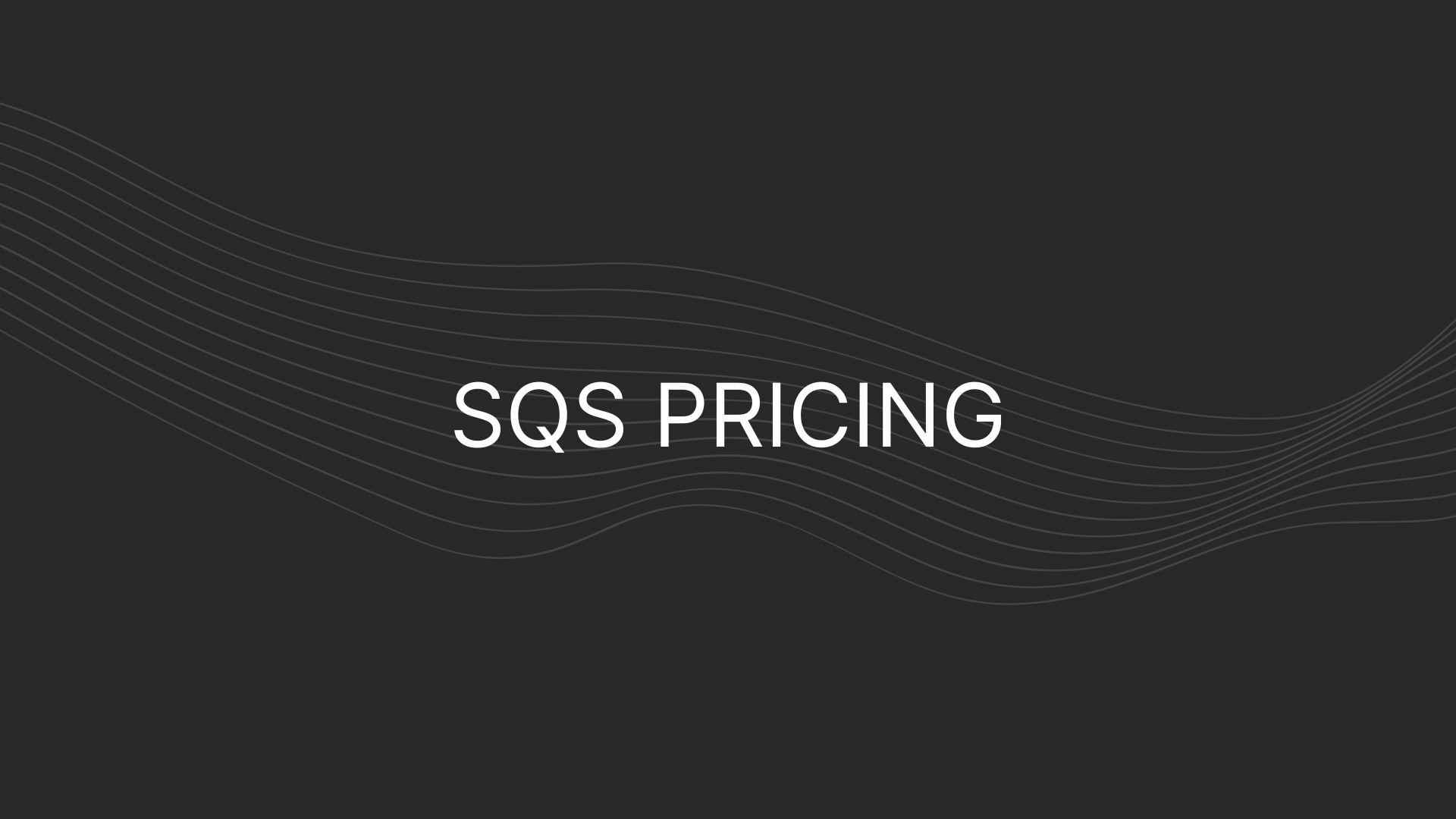Looking for SQS pricing? Find out what the cost of SQS is in case you are looking for a message queuing service for your applications.
What is SQS?
SQS stands for Simple Queue Service, a message queuing service provided by Amazon AWS that enables you to decouple and scale microservices, distributed systems, and serverless applications. With SQS, you can send, store, and receive messages between software components without losing messages or requiring other components to be available at the same time. This helps you to build more resilient and fault-tolerant applications. It is designed for developers and businesses who need a reliable and scalable way to decouple and asynchronously process data or events between distributed software components and microservices.
SQS Pricing
AWS SQS’s pricing depends on several factors, including the type of queue, the number of requests made to the service, the amount of data transferred in and out of the queue, and the number of messages sent or received per second. If you are using a Standard queue and sending or receiving 1 million messages per day, each message is 1 KB in size, you can expect to pay around $4 per month for the SQS service itself. However, if you are using a FIFO queue, the cost will be slightly higher, as there is an additional charge per message per second. There is a Free trial period that includes 1 million requests with Amazon
SQS Pricing Plans
The SQS’s pricing is based on usage and there are two types of pricing: standard and FIFO.
For Standard queues
- $0.40 per 1 million requests
- $0.0000004 per request (after the first 1 million requests per month)
- $0.50 per GB of data transferred in or out of Amazon SQS
For FIFO queues
- $0.50 per 1 million requests
- $0.0000005 per request (after the first 1 million requests per month)
- $0.50 per GB of data transferred in or out of Amazon SQS
- $0.00000075 per message per second for each message sent or received
Additionally, there are charges that are used in conjunction with SQS, such as data transfer, data storage, and messaging rates.
SQS Enterprise Pricing
AWS SQS’s pricing for its enterprise can be customized if you require additional features, capabilities, or support for your SQS deployment. The pricing may vary depending on the level of support, complex requirements and higher usage volumes. The support plan provides different levels of technical support, response times, and other various features supported by the AWS environment.
SQS Product Comparison
AWS SQS pricing plans differ based on usage. For example, AWS provides free tier usage for SQS for the first 1 million requests per month and for 1 GB of data transferred per month for Standard queues, whereas the free tier usage for FIFO queues is for the first 250,000 requests per month and for 1 GB of data transferred per month. It also offers reserved queue instances for customers who require predictable usage and cost, as well as pay-as-you-go pricing for customers who need more flexibility and scalability. For the Standard queue, you are charged based on the number of requests you make to the service, as well as the amount of data transferred in and out of the queue. For FIFO queues, charges are based on the number of requests made to the service, the amount of data transferred in and out of the queue, and the number of messages sent or received per second.
How Much Does SQS Cost?
AWS provides multiple SQS pricing and plan options. The plans have no upfront costs, only usage charges. It offers a free tier for SQS, which includes up to 1 million requests per month and up to 1 GB of data transfer per month for Standard queues, and up to 250,000 requests per month and up to 1 GB of data transfer per month for FIFO queues.
If SQS Pricing is Too High, Check Out These SQS Alternatives
There are several alternatives depending on your specific requirements and use case.
- Apache Kafka is an open-source distributed streaming platform that provides a high-throughput, low-latency messaging system for real-time data processing and analytics.
- RabbitMQ is an open-source message broker that is highly scalable and can be deployed in a clustered or federated configuration.
- Azure Service Bus is a fully managed messaging service that supports multiple protocols and endpoints and provides features such as message sessions, dead-letter queues, and topic filtering.
- Google Cloud Pub/Sub provides scalable and reliable message delivery between applications and services and supports multiple message formats and protocols
- IBM MQ is a messaging middleware that provides reliable and secure message delivery across multiple platforms and applications.


